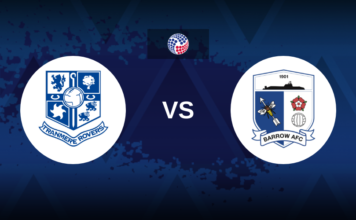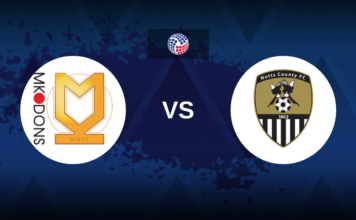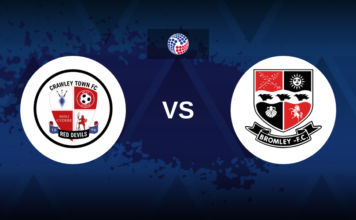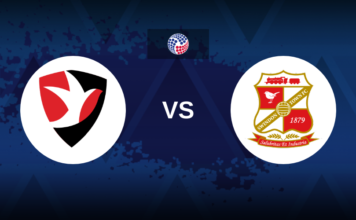In football, few things stir up passion quite like a city rivalry.
Manchester has its red and blue wall. Milan has its San Siro split between AC and Inter.
But when it comes to London, the debate over the biggest club is absolute chaos.
London isn’t just a two-club town — it’s a battleground.
The English capital is home to more professional football clubs than any other city in Europe. From historic giants to fairytale underdogs, London is bursting with footballing pride. Even teams like Fulham and Brentford are punching above their weight, while West Ham are basking in the glow of a European trophy after winning the UEFA Conference League. Crystal Palace, under Oliver Glasner, also seem poised for better things.
But when it comes to who truly owns London, the debate almost always narrows down to three clubs:
Arsenal, Chelsea, and Tottenham Hotspur.
So, let’s dive deep: trophies, fanbases, global reach, history, financial muscle — everything that matters in the race for London’s crown.
1. Arsenal: History, Tradition, and a Global Legacy
If you grew up watching football in the 90s or early 2000s, there was no question: Arsenal were the team in London.
With roots dating back to 1886, Arsenal was one of the first London clubs to achieve elite status. Moving into the Emirates Stadium before any rivals had even dreamed of such an upgrade, Arsenal always led with vision and ambition.
Under Arsène Wenger, they didn’t just win — they changed English football forever.
Moments like Thierry Henry’s effortless brilliance, Dennis Bergkamp’s silky touches, and the Invincibles season of 2003–04 still define the Premier League’s golden age.
Trophies:
- 13 League Titles (the most among London clubs)
- 14 FA Cups (the most in England)
- Numerous Community Shields
Fanbase:
Arsenal’s global support is immense — stretching from Lagos to New Delhi, Bangkok to New York. Even during trophy droughts, their brand never faded.
Today, under Mikel Arteta, Arsenal are back challenging for major honours, with a young, dynamic squad full of belief.
🔗 Visit Arsenal’s official website
2. Chelsea: Modern Empire and European Pedigree
If Arsenal ruled the 90s, Chelsea kicked the door down in the 2000s — and they haven’t looked back since.
Roman Abramovich’s 2003 takeover turned Chelsea from a solid domestic club into an international powerhouse. Signings like Drogba, Lampard, Robben, and Čech flooded in. Success followed at a relentless pace.
Trophies:
- 6 League Titles
- 8 FA Cups
- 5 League Cups
- 2 UEFA Champions League titles (2012, 2021)
- 2 Europa Leagues, 1 UEFA Super Cup, 1 Club World Cup
Chelsea are the only London club to have won the Champions League — and they’ve done it twice.
Fanbase:
Chelsea’s rise during the global television era helped them gain millions of fans worldwide, particularly among younger audiences who associate the club with winning and star power.
Despite turbulence after Abramovich’s departure, Chelsea under BlueCo ownership remain one of the world’s wealthiest and most ambitious clubs.
🔗 Visit Chelsea’s official website
3. Tottenham Hotspur: The Sleeping Giants?
Spurs often hear the jibe, “What have they won?” But look deeper, and you’ll see a club rich in tradition and ambition.
Founded in 1882, Tottenham Hotspur boasts a loyal and passionate fanbase. Their state-of-the-art stadium is arguably the best football arena in England today, hosting NFL games, concerts, and more.
Trophies:
- 2 League Titles (pre-Premier League era)
- 8 FA Cups
- 4 League Cups
Though their last major trophy came in 2008, Spurs have often flirted with success, reaching the Champions League final in 2019 under Mauricio Pochettino.
Fanbase:
While Spurs’ international fanbase is still growing, the rise of Heung-Min Son has made them hugely popular in South Korea, creating a global footprint they are continuing to expand.
Potential:
With a world-class stadium, a top training facility, and a modern approach to club business, Tottenham have the foundations in place.
If they start winning trophies, they could redefine the footballing map of London.
🔗 Visit Tottenham Hotspur’s official website
Comparison: Arsenal, Chelsea, Tottenham
Silverware
If we’re judging purely by trophies, Arsenal and Chelsea are neck and neck — but in different ways.
- Arsenal dominate historical records with 13 league titles and 14 FA Cups.
- Chelsea dominate the modern era with 2 Champions League wins and consistent silverware over the past 20 years.
Spurs, meanwhile, trail behind but remain an ever-present challenger with solid domestic success — even if modern trophies have been elusive.
Fanbase and Global Pull
When it comes to global recognition:
- Arsenal built a deep-rooted, worldwide fanbase during the early 2000s.
- Chelsea surged with their European successes and modern marketing.
- Tottenham are catching up, largely thanks to global stars and infrastructure investments.
Financial Power and Infrastructure
Money talks — and Arsenal, Chelsea, and Spurs are all in the conversation.
- Chelsea are backed by billionaire owners and are aggressive spenders.
- Arsenal have loosened the purse strings, spending big under Mikel Arteta.
- Tottenham generate massive revenue from their stadium and events, offering long-term financial promise.
Cultural Impact: Moments That Matter
Arsenal changed English football’s identity under Wenger.
Chelsea pioneered the owner-driven success model in England.
Spurs continue to entertain and have produced some of the most thrilling football moments in recent memory.
Each club has left an undeniable cultural imprint — whether it’s Henry’s swagger, Drogba’s power, or Lucas Moura’s miracle in Amsterdam.
Verdict: Who Rules London?
If you’re judging by history, tradition, and global fanbase, Arsenal probably takes the edge.
If you value modern dominance, European glory, and recent silverware, Chelsea claim the crown.
If you’re betting on the future, Spurs have all the tools to one day rise to the top.
Right now, it’s a two-horse race: Arsenal vs Chelsea — red vs blue. But as we know in football, tides can turn quickly. London remains the ultimate football battleground — and every season brings a new chapter.







